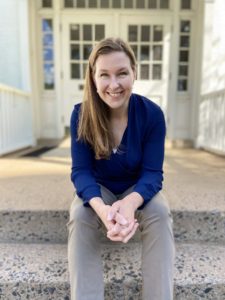By Mary Welander
State Rep., D-114

Mary Welander
To start, I would like to sincerely thank everyone within the community for the overwhelming support that has been given to me and my family after the loss of my mom, Marti Barrett, followed by the additional loss of my friend and colleague Quentin Williams.
As I get back to work, I wanted to update you on how the session will be operating this year. For the first time since 2020, the Capitol will be fully open to the public. This is exciting news, for not only all of you, but for me as well as my first two sessions were held in a hybrid model.
I think it is important to share that there will still be virtual and hybrid access/options, which I believe is vital to public participation.
The bipartisan group of our legislative leaders has agreed on rules requiring committees to meet in person, but with the inclusion of virtual participation and hybrid public hearings. This means that community members will still have the option to testify remotely if they would prefer to do so instead of in person.
Over the last two sessions, virtual access to committee meetings and hearings drastically increased public participation, which was inspiring to witness. With this resource continuing this year, I hope you will continue to participate to have your voices and opinions heard.
As many of you know, the bill process is lengthy – as we work tirelessly to draft effective legislation that will continue to drive our state forward. Here is the timeline of a bill from now until June:
- Proposed bill: Ideas for bills often come from lawmakers and constituents like you.
- Bill numbering: Bill title, number and sponsors are printed in the House and Senate journals.
- Sent to committee: The bill is sent to the appropriate committee(s).
- Legislative Commissioners’ Office: The Legislative Commissioners’ Office checks the bill for constitutionality and consistency with other laws.
- Office of Fiscal Analysis: This office adds an estimate of the bill’s cost and fiscal impact on the community.
- Calendar: The clerk assigns the bill a calendar number.
- On the floor: Lawmakers debate and draft amendments.
- To the governor: If both houses pass the bill, it is sent to the governor.
As your community mouthpiece in Hartford, it is my job to voice your concerns, so please remember that you can reach out to me at any time throughout the session to help give me better insight into what your needs are. Your advocacy helps me be an effective representative for you.
Follow important legislative and community updates by signing up for my weekly newsletter. You can also follow my official state representative Facebook account to catch up on what is going on both in Hartford and back home. And of course, if you ever need any assistance, or you would like to chat with me about something you would like to see addressed in Hartford, please email me directly at Mary.Welander@cga.ct.gov.